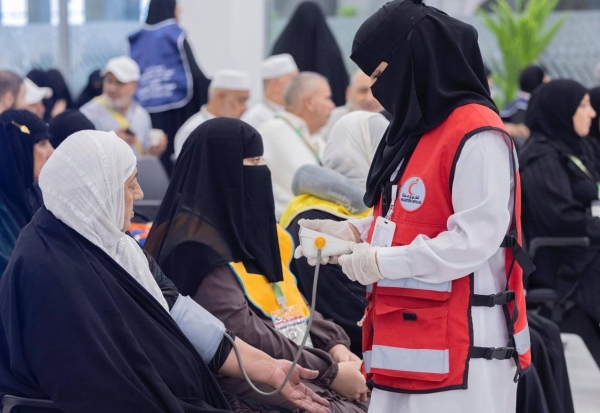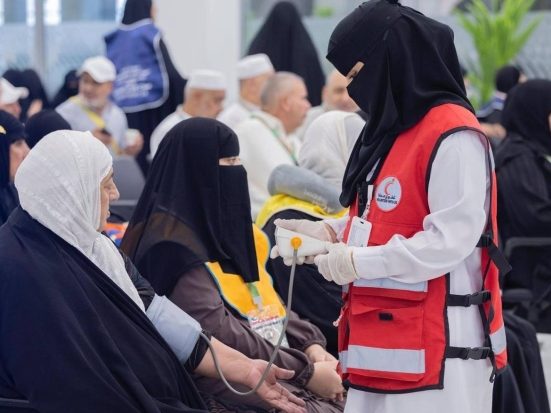As the 2025 Hajj season gathers momentum, Saudi Arabia’s Ministry of Health has announced that it has already provided more than 78,000 medical services to pilgrims arriving from across the globe. The figure underscores the Kingdom’s ongoing commitment to ensuring the well-being and safety of all pilgrims participating in this year’s spiritual journey.
According to official data released on Thursday, the services rendered include routine medical consultations, emergency interventions, surgical procedures, and specialized treatments. Thousands of pilgrims have benefited from preventive healthcare, chronic disease management, and medication supply, as well as intensive care where necessary.
The Ministry noted that over 13,000 of these services were offered to pilgrims with chronic illnesses, while more than 800 individuals received urgent care at various hospitals and mobile clinics strategically positioned across Makkah, Madinah, and the holy sites of Mina, Arafat, and Muzdalifah.
In a statement, the Saudi Health Minister, Fahad Al-Jalajel, reaffirmed the government’s readiness to respond to any public health concerns throughout the pilgrimage. “Our healthcare system is fully equipped with trained personnel, advanced technology, and an integrated emergency response framework to ensure the health of every pilgrim remains a top priority,” he said.
Saudi Arabia has mobilized tens of thousands of medical staff, including multilingual volunteers, across more than 100 healthcare facilities for this year’s Hajj. These facilities include temporary field hospitals, ambulance centers, and thermal screening points at airports and border entry points.
In line with global health standards, the Kingdom has also launched awareness campaigns on heat stress, communicable diseases, and personal hygiene, advising pilgrims to stay hydrated and avoid overcrowded areas to reduce health risks.
Pilgrims from Nigeria and other countries have praised the efficiency of the Saudi health system, noting the speed of service delivery and the multilingual support provided at health stations. The proactive health approach is part of broader efforts by the Kingdom to enhance the overall pilgrimage experience in line with Vision 2030.
As the Days of Tashreek and the symbolic stoning rituals approach, Saudi authorities say they remain vigilant and prepared to scale up medical support in response to the needs of over 1.5 million expected pilgrims this season.

